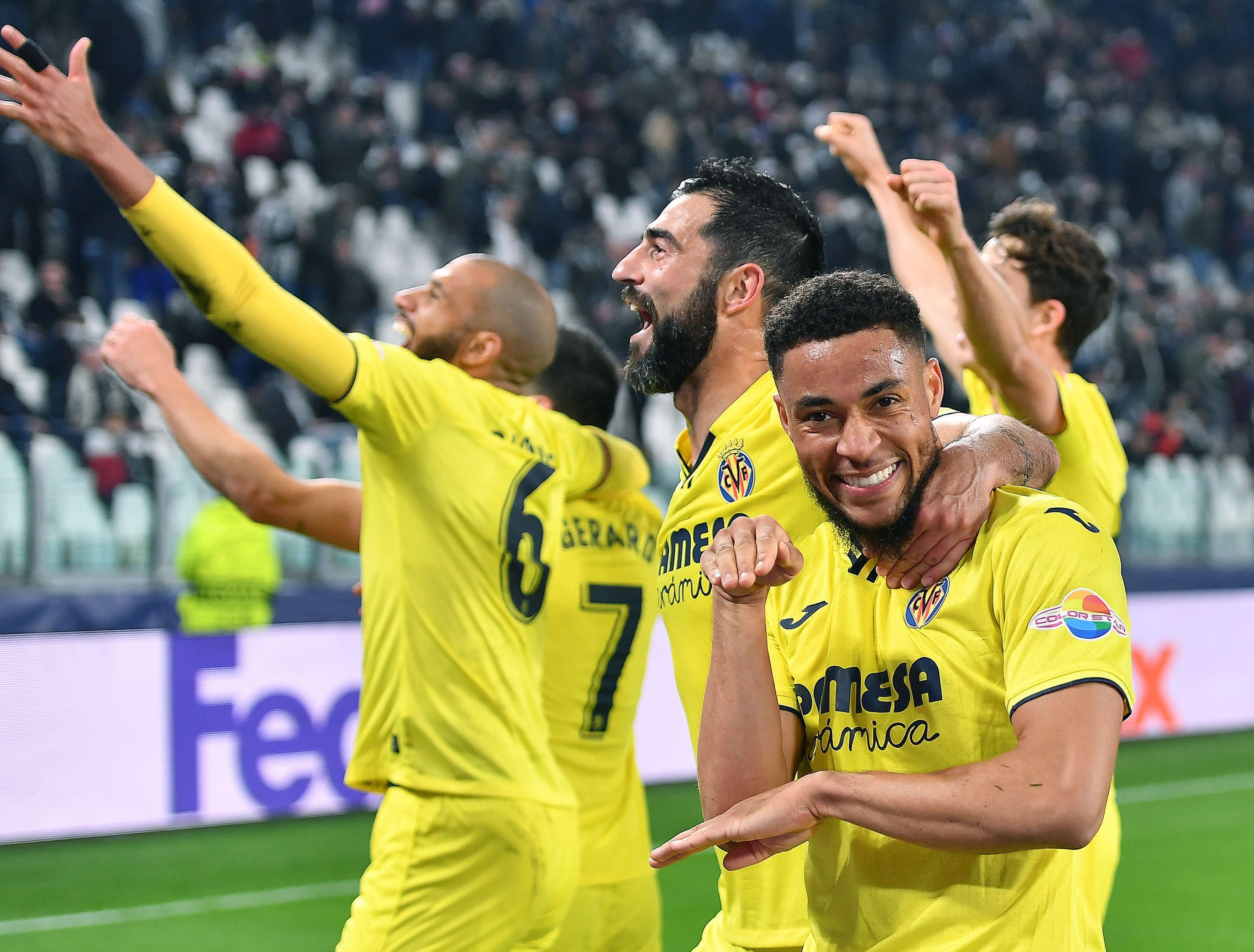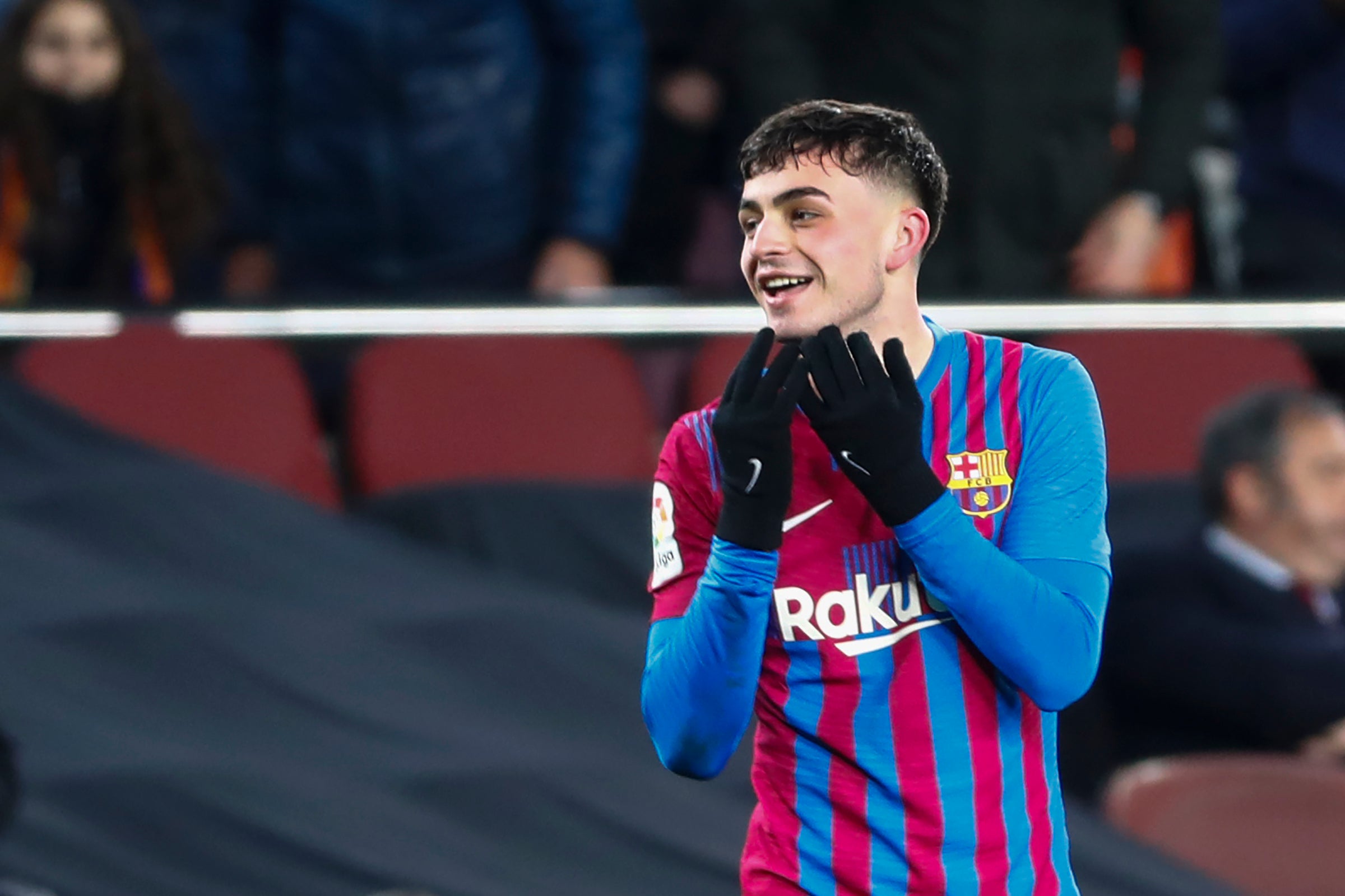La Liga’s Champions League trio can prove Spanish football’s strength
La Liga may not be what it was but after Villarreal joined Atletico and Real Madrid in the Champions League’s last eight, has the Spanish top flight been too quickly dismissed?

Your support helps us to tell the story
From reproductive rights to climate change to Big Tech, The Independent is on the ground when the story is developing. Whether it's investigating the financials of Elon Musk's pro-Trump PAC or producing our latest documentary, 'The A Word', which shines a light on the American women fighting for reproductive rights, we know how important it is to parse out the facts from the messaging.
At such a critical moment in US history, we need reporters on the ground. Your donation allows us to keep sending journalists to speak to both sides of the story.
The Independent is trusted by Americans across the entire political spectrum. And unlike many other quality news outlets, we choose not to lock Americans out of our reporting and analysis with paywalls. We believe quality journalism should be available to everyone, paid for by those who can afford it.
Your support makes all the difference.As Unai Emery wildly celebrated Villarreal’s surprising win over Juventus in the Champions League round of 16, La Liga president Javier Tebas allowed himself a smile. The wider context was inescapable.
“It’s a message to the Super League,” Tebas said. “It’s a message that football isn’t just the super-economies.”
It’s also a riposte to the idea that La Liga’s power has collapsed, and that it is a competition in profound decline. It’s true that it’s not what it was, but Villarreal’s victory suddenly made the picture look a lot healthier.
Their sensational 3-0 win in Turin ensured La Liga matches the Premier League in featuring three clubs in these Champions League quarter-finals.
For La Liga, that’s the seventh time it has happened in the last decade, albeit the first time since 2017-18. In those 10 years, that quarter-final return has only been matched or bettered in three seasons, and all of those were by the Premier League in the period since 2018. England had four quarter-finalists in 2018-19, as well as three this season and last.
Leagues to have had at least three Champions League quarter-finalists
* four quarter-finalists
Spain 11 (2000, 2001, 2002, 2003, 2013, 2014, 2015, 2016, 2017, 2018, 2022)
England 8 (2007, 2008*, 2009*, 2011, 2019*, 2021, 2022)
Italy 3 (2003, 2005, 2006)
Those figures are a sign of where the real power now lies, but it also flavours this week’s Champions League ties.
Of La Liga’s three quarter-finalists, two will face English clubs. Atletico Madrid first travel to Manchester City on Tuesday, before Real Madrid go to Chelsea on Wednesday. The returns make the Spanish capital a centre of European football next week.
The results may dictate whether that is also true in a deeper sense, and whether La Liga’s influence has been dismissed a little too quickly.
As is often the case with discussions of wider trends, some of the evidence from any individual season is only ever circumstantial. It isn’t necessarily about the core strength of any competition but the situation of clubs.
It is obvious, after all, that Atletico and Real Madrid are not what they were. That just didn’t matter in the moment.
Atletico had been on improving form, for example, but were also probably fortunate to meet an ailing Manchester United in the previous round. Diego Simeone had a more drilled side than Ralph Rangnick, and it told. It has also helped propel them, adding momentum and confidence. Simeone’s players feel they can really disrupt City, and cause them problems others can’t. It may well represent a rare clash of styles and, oddly, the ideal opponents for Atletico.
Paris Saint-Germain ended up being the ideal opponents for Madrid. As superb as Carlo Ancelotti’s side – and particularly Luka Modric and Karim Benzema – were in that final 20 minutes of the second leg, it felt like it was much more about the French club than Madrid. The Liga leaders still feel unconvincing and incomplete, as was made clear in their recent 4-0 league defeat to Barcelona.
That in itself says something bigger about the Spanish league, while Madrid’s own opponents touch on something bigger about them.
Champions League quarter-finals
2022
Benfica vs Liverpool
Man City vs Atletico Madrid
Villarreal vs Bayern Munich
Chelsea vs Real Madrid
Chelsea, for all their difficulties this season, haven’t really missed Eden Hazard. He was the star that Madrid president Florentino Perez had long targeted, but has instead become a symbol of the decline of both Madrid and La Liga – at least in terms of glamour.
That is one thing that’s undeniable. The competition currently lacks real A-list footballers in their prime, of the type that had defined it in the last two decades.
Madrid themselves look that bit more stale. The stars of that PSG tie, Benzema and Modric, are 34 and 36, respectively. Hazard himself is 32, but nobody expects him to have any effect against his old club on Wednesday. Any appearance at all would be a surprise. He still hasn’t played in a Clasico.
Some of that is down to basic bad luck, with injury. It’s also an indication of Madrid’s lack of foresight. They may retain the resolve and nous to eliminate Chelsea, yes, but they also need an overhaul of their own.
That may be coming. Prominent sources see the Kylian Mbappe deal as “done”. The Independent has reported how the Madrid hierarchy have contacted Michael Edwards, Liverpool’s highly regarded sporting director who is stepping down at the end of the season and who is interested in a key recruitment job at the Bernabeu.
Even someone as simplistic in his football thinking as Perez knows it is better to buy stars for cheaper rather than having to buy them for huge prices off English clubs. That change in stance is admittedly influenced by how Madrid have fallen behind the state-owned clubs in terms of finance, a fact that was a huge motivation behind the Super League.
The transformation of Madrid’s business partners and great rivals, however, shows how quickly it can change.
Mere months ago, Barcelona were the sign of La Liga’s wider decline. Now, as with the competition as a whole, it is as if a crisis has actually allowed an opportunity to refresh. The Spanish outlook in the Champions League would probably be very different if Barca had appointed Xavi that bit earlier and they’d stayed in the competition.
The Catalan great does now look like the managerial visionary many expected, but he has been helped by the wealth of young talent at Barca that is ready to be shaped. It is simply remarkable that they can field two teenagers in their midfield, in Pedri and Gavi, and they can look like one of the most commanding sides in Europe.
“It’s the personality they play with,” former Espanyol and Manchester City player Pablo Zabaleta enthuses to The Independent. “Look at Pedri. He’s incredible.”
And that’s still without another teenager really firing in front of them, in the precocious Ansu Fati. The trio represent the future of Barcelona and Spanish football.

They also represent something else. That is the continuing strength of Spanish talent production. Nothing has changed there. It remains one of the most fertile football countries in the world, where so many of the circumstances for producing players are just right.
“The league doesn’t even need to have a role here, because it’s the way Spanish clubs are,” Tebas says. “That’s to have important academies, important facilities for young players. One of the goalscorers for Villarreal, Pau Torres, was a local lad born there, who’d been at the club since the age of five - formed by Villarreal. That’s a hallmark. It’s a way of being for Spanish football.”
There is certainly no question about the country’s youth coaching, although there has been growing doubt about the coaching culture within the league.
Many top managers have felt La Liga has gone “stale” in terms of its football. Luis Enrique has been one of the most vocal about it, and it is why he is not just trying to change the national team through intense football.
Xavi has meanwhile shown that it doesn’t take much to update if the right principles are in place, which is precisely the case with the youth coaching. Similarly, Villarreal’s progress is a victory of coaching. That’s the only way financially weaker clubs can compete. It breeds adaptability, and innovation.
It is possible this can happen in the competition as a whole, but at a level beyond coaching.
La Liga may still be the second most powerful league in the world, but it doesn’t have anything like the international income of the Premier League. The Covid crisis has meanwhile forced clubs to drastically re-assess budgets, at a time when the authorities have enforced much stricter financial controls. That is what led to Leo Messi’s departure. That is what has led to a much more modest looking competition.
It may also leave a more solid base, from which clubs can grow in a more assured manner.
Many on the commercial side of the game are meanwhile praising the innovation of La Liga, as it looks to do different things to increase its international profile. That’s the only way it can compete with the Premier League right now. Collaborative relationships are being forged with other competitions. La Liga’s highest profile fixtures are meanwhile being built up as Super Bowl style events with their own branding. That is easiest with El Clasico, but they are doing the same with occasions like the Seville derby.
The aim is to create that buzz that builds long-term interest, and investment.
It is smart, but questions remain. The biggest revolves around the wisdom of the CVC deal. Tebas insists the company will never have any control but, in the words of one European executive, giving out a share of the competition to a private equity firm is “a recipe for disaster”.
More immediately, it is fair to ask whether the long-term health of La Liga would be better served by a short-term hit on some broadcasting income. Putting the competition on terrestrial stations in major markets – as happened with Serie A and Channel 4 in the 90s – is surely a way to easily get an awful lot more interest.
Audience figures show people are still so hungry for any free live football, no matter what it is. If it’s clubs like Barcelona and Real Madrid, it’s a feast. If it’s Osasuna or Rayo Vallecano, though, it’s a chance for a lot more people to try something different. You suddenly reach a lot more people than the cult audience who already subscribe to paywall deals.
Because, for now, most eyes are on the Premier League.
It creates the wealth, that creates the current superiority. The feel has been the English competition is pulling too far ahead.
These Champions League quarter-finals will test the full truth of that, and maybe offer another message.
Join our commenting forum
Join thought-provoking conversations, follow other Independent readers and see their replies
Comments